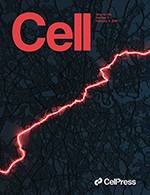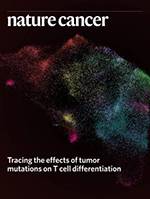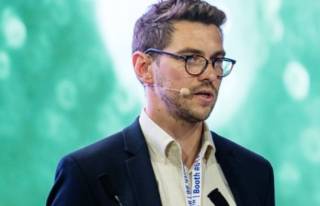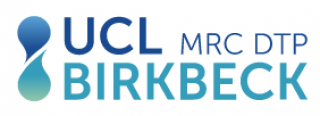Pre-Cancer Immunology Laboratory
Group Leader: Dr James Reading
Our Vision for Cancer Interception
Our team believes that the immune system can be weaponised to detect and intercept the development of invasive tumours. We are exploring this idea by addressing three questions:
- How do T cells engage with developing neoplasia during carcinogenesis?
- Can we exploit signals of early T cell engagement to track underlying tumour development?
- What are the defects in the nascent T cell response that we could target to intercept progression of pre-cancerous lesions?
Our ambition is to develop T cell focused blood tests and precision immune-interception drugs that can track and target carcinogenesis, respectively.
Our Research: T cell-directed interception of lung cancer
Lung Cancer is the largest cause of cancer mortality worldwide due in part to late-stage presentation and treatment, underscoring an urgent need for new early detection and prevention technologies. Work in pre-clinical models suggests that T cells recognise neoantigens during carcinogenesis, leading to an incipient phase of T cell dysfunction. Several groups have found corresponding evidence of early immune regulation during preinvasive disease in human bronchial biopsies. However, the precise cellular and molecular events that govern this process are undefined. Delineating how the T cell network is regulated and restructured during pulmonary carcinogenesis may unlock methods to track and target lung tumour development.
To tackle this challenge, we are mapping preinvasive T cell recognition, recirculation and regulation in individuals who develop lung cancer during chest computerised tomography (CT) and autofluorescent bronchoscopy surveillance. By applying cross-tissue, antigen-specific multi-omic T cell profiling in samples from individuals developing lung cancer we can precisely define detectable and targetable elements of T cell remodelling during the initial phase of anti-tumour immunity. This data is helping us to define when and how to intercept immune regulatory pathways that foster lung cancer development.
To complement our work in clinical samples we use carefully calibrated autochthonous pre-clinical mouse models, allowing us to test new lung cancer interception regimens and gain deeper mechanistic insight into the immune-regulatory pathways that drive preinvasive pulmonary disease progression. By generating an integrated, T cell-centric framework to track and target development of invasive tumours we hope to identify and prophylactically treat individuals with progressive preinvasive lesions or nodules, so that we can prevent lung cancer. It is possible that a fraction of these pathways will be active in other pre-cancers, allowing us to charter a roadmap for multi-cancer interception.
Our Story
The Pre-Cancer Immunology lab was initiated with a UCLH BRC NIHR Fellowship in 2021, before officially launching with funding from a UKRI Future Leaders Fellowship started in June 2022. Since then, we have expanded into a multidisciplinary, vibrant and dynamic team of 13 wet and dry lab basic and clinical researchers undertaking PhDs or Postdoctoral training in Pre-Cancer Immunology. We work across three inter-connected cores: i) The T cell Reactivity core, who are profiling epitope specificity of T cells in preinvasive lesions, ii) The Interception core, who map and target T cell regulation in progressive pre-malignant lesions/nodules and the iii) The Early detection core who are using T cell omics to detect underlying progressive preinvasive disease and identify individuals at risk of cancer.

Research Team














Selected Publications
1. Tumor heterogeneity impairs immunogenicity in mismatch repair deficient tumors. Reading, J. L., Caswell, D. R., Swanton, C. Nature Genetics (2023) Sept 27; 55, 1610-1612. DOI: 10.1038/s41588-023-01492-x

2. Pre-Cancer: From diagnosis to intervention oppertunitites. Hwant, E. S., Reading, J., Yu, J., Paolo Dotto, G., Grady, W. M., Czerniak, B., Serrano, M. Cancer Cell. (2023) Apr 10; 41 (4): 637-640. Doi: 10.1016/j.ccell.2023.03.012
3.Tracking down tumor-specific T cells. Reading, J. L., Foster, K., Joshi, K., Chain, B. Cancer Cell. (2022) Apr 11; 40 (4): 351 - 353. Doi: 10.1016/j.ccell.2022.03.007
4. Meta-analysis of Tumour and T cell intrinsic mechanisms of sensitization to checkpoint inhibition. Kevin Litchfield*, James L Reading*, Clare Puttick*, Krupa Thakkar, Chris Abbosh, Robert Bentham, Thomas B. K. Watkins, Rachel Rosenthal, Dhruva Biswas, Andrew Rowan, Emilia Lim, Maise Al Bakir, Virginia Turati, José Afonso Guerra-Assunção, Lucia Conde, Andrew J.S. Furness, Sunil Kumar Saini, Sine R Hadrup, Javier Herrero, Se-Hoon Lee, Peter Van Loo, Tariq Enver, James Larkin, Matthew D. Hellmann, Samra Turajlic, Sergio Quezada, Nicholas McGranahan, Charles Swanton.
Cell. (2021) Feb 4;184(3):596-614.e14. doi: 10.1016/j.cell.2021.01.002.
5. Augmented Expansion of Treg Cells From Healthy and Autoimmune Subjects via Adult Progenitor Cell Co-Culture. Reading, J. L#., Roobrouck, V. D., Hull, C. M., Becker, P. D., Beyens, J., Valentin-Torres, A., Boardman, D., Lamperti, E. N., Stubblefield, S., Lombardi, G., Deans, R., Ting, A. E., Tree, T. Front. Immunol. (2021) Sept 1. Doi: 10.3389/fimmu.2021.716606
6. Escape from nonsense-mediated decay associates with anti-tumor immunogenicity. Kevin Litchfield*, James L. Reading*, Emilia L. Lim, Hang Xu, Po Liu, Maise Al-Bakir, Yien Ning Sophia Wong, Andrew Rowan, Samuel A. Funt, Taha Merghoub, David Perkins, Martin Lauss, Inge Marie Svane, Göran Jönsson, Javier Herrero, James Larkin, Sergio A. Quezada, Matthew D. Hellmann, Samra Turajlic & Charles Swanton*. Nat Commun., (2020). July 11 (1), 3800. Doi:10.1038/s41467-020-17526-5
*equal contribution

7. The T cell differentiation landscape is shaped by tumour mutations in lung cancer. Ghorani, E*, Reading, J. L.*#, Henry, J. Y., Massy, M. R. D., Rosenthal, R., Turati, V., Joshi, K., Furness, A., Ben Aissa, A., Kumar Saini, S. et alRamskov S, Georgiou A, Sunderland MW, Wong YNS, De Mucha MV, Day W, Galvez-Cancino F, Becker PD, Uddin I, Ismail M, Ronel T, Woolston A, Jamal-Hanjani M, Veeriah S, Birkbak NJ, Wilson GA, Litchfield K, Conde L, Guerra-Assunção JA, Blighe K, Biswas D, Salgado R, Lund T, Al Bakir M, Moore DA, Hiley CT, Loi S, Sun Y, Yuan Y, AbdulJabbar K, Turajilic S, Herrero J, Enver T, Hadrup SR, Hackshaw A, Peggs KS, McGranahan N, Chain B, Swanton C , Quezada SA. Nature Cancer (2020) May 1 (5), 546-561. Doi: 10.1038/s43018-020-0066-y
*equal contribution
- Nature Community Behind the Paper: Tumour neoantigens fuel CD4 and CD8 T cell exhaustion in lung cancer. (video)
- Nature Community Behind the Paper: Coupling T cell differentiation to the lung cancer mutanome via neoantigen surveillance
8. Spatial heterogeneity of the T cell receptor repertoire reflects the mutational landscape in lung cancer. Joshi K*, Robert de Massy M*, Ismail M*, Reading JL, Uddin I, Woolston A, Hatipoglu E, Oakes T, Rosenthal R, Peacock T, Ronel T, Noursadeghi M, Turati V, Furness AJS, Georgiou A, Wong YNS, Ben Aissa A, Werner Sunderland M, Jamal-Hanjani M, Veeriah S, Birkbak NJ, Wilson GA, Hiley CT, Ghorani E, Guerra-Assunção JA, Herrero J, Enver T, Hadrup SR, Hackshaw A, Peggs KS, McGranahan N, Swanton C, Quezada SA, Chain B. Nat Med. (2019) Oct;25(10):1549-1559. Doi: 10.1038/s41591-019-0592-2
9. Neoantigen-directed immune escape in lung cancer evolution. Rosenthal R, Cadieux EL*, Salgado R*, Bakir MA*, Moore DA*, Hiley CT*, Lund T*, Tanić M, Reading JL, Joshi K, Henry JY, Ghorani E, Wilson GA, Birkbak NJ, Jamal-Hanjani M, Veeriah S, Szallasi Z, Loi S, Hellmann MD, Feber A, Chain B, Herrero J, Quezada SA, Demeulemeester J, Van Loo P, Beck S, McGranahan N, Swanton C. Nature. (2019) March; Doi: 10.1038/s41586-019-1032-7
10. Urine-derived lymphocytes as a non-invasive measure of the bladder tumor immune microenvironment. Wong YNS, Joshi K, Khetrapal P, Ismail M, Reading JL, Sunderland MW, Georgiou A, Furness AJS, Ben Aissa A, Ghorani E, Oakes T, Uddin I, Tan WS, Feber A, McGovern U, Swanton C, Freeman A, Marafioti T, Briggs TP, Kelly JD, Powles T, Peggs KS, Chain BM, Linch MD, Quezada S. J Exp Med. (2018) Nov 5;215(11):2748-2759. Doi: 10.1084/jem.20181003
11. The function and dysfunction of memory CD8+ T cells in tumor immunity. Reading, J. L*#, Gálvez-Cancino, F*., Swanton, R. C., Lladser, A., Peggs, K., & Quezada, S. Immunological Reviews (2018) May;283(1):194-212. Doi: 10.1111/imr.12657
12. Insertion-and-deletion-derived tumour-specific neoantigens and the immunogenic phenotype: a pan-cancer analysis. Turajlic S*, Litchfield K*, Xu H, Rosenthal R, McGranahan N, Reading JL, Wong YNS, Rowan A, Kanu N, Al Bakir M, Chambers T, Salgado R, Savas P, Loi S, Birkbak NJ, Sansregret L, Gore M, Larkin J, Quezada SA, Swanton C. Lancet Oncol. (2017) Aug;18(8):1009-1021. Doi: 10.1016/S1470-2045(17)30516-8
13. Too Much of a Good Thing? Chronic IFN Fuels Resistance to Cancer Immunotherapy. Reading, J. L., & Quezada, S. A. (2016). Immunity, 45 (6), 1181-1183. Doi: 10.1016/j.immuni.2016.12.004
 Close
Close








